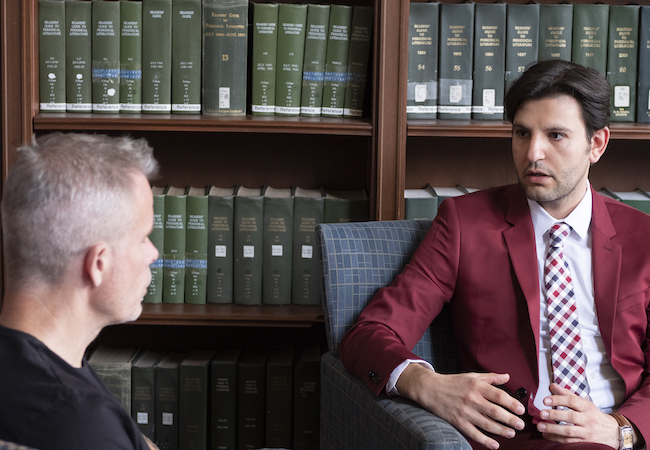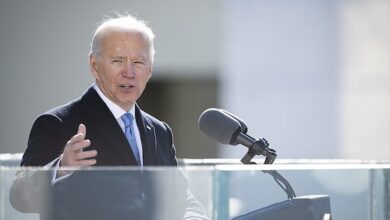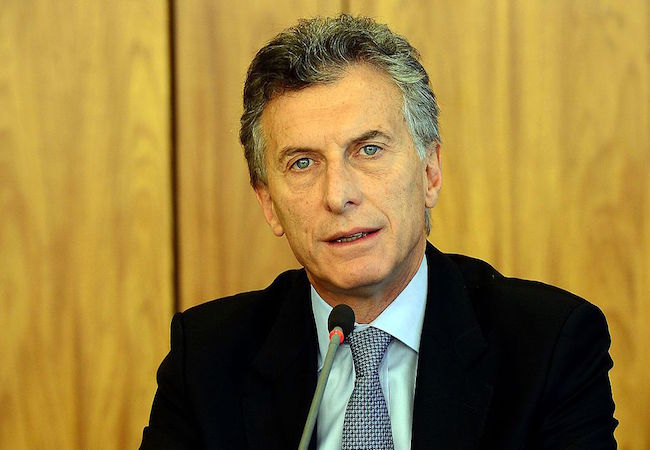Washington, Moscow, and the future of online security
A Discussion between Professor David MacFadyen (UCLA) and Alexander Woodman

By Alexander Woodman
Early research by Professor David MacFadyen began in the overlapping fields of Russian literature, history, and Soviet Studies. Together they fueled the publication of eleven books. With a variety of topics, a primary focus transpired: the history of popular music in Eastern Europe. In popular culture he found a dovetailing of both public policy and private romance. This year, Professor MacFadyen was received UCLA’s Distinguished Teaching Award. He currently serves as Chair in the Department of Comparative Literature and serves simultaneously in the Dept. of Musicology, where he is developing a series of digital initiatives in the burgeoning fields of Medical Humanities and blockchain technology.
Today, I had the honor to discuss these experiences they pertain to Russian-American relations, the current state of cybersecurity, and the impact on both on daily life across Russia itself.
A.W. The Digital Guardian has ranked the Cybersecurity Summit as one of the “Fifty Must-Attend Conferences.” How would you rate the influence of this Summit on the prevention of cyber–attacks in the areas of economics and politics, particularly during the elections?
D.M.Cyber-security has increased in significance for politics, to be sure. In Helsinki, Putin spoke of increased collaboration to diminish terrorist attacks. Similarly, Trump has advocated for an “impenetrable cybersecurity unit.” More pressing, however, is the significance for business; here there’s insufficient attention. UK and US authorities have warned of attacks on intellectual property and individual data––regarding identity theft, say. The same worries have emerged regarding attacks from China, North Korea, Iran, and so forth. At the very least, corporations should inform both clients and investors of necessary defensive measures. I would conjecture, however, that investors are often ill-informed, not to mention the general public.
Currently we have a president who does not recognize the issue as necessary. The NSA has bemoaned the lack of a clear strategy for “rules of international engagement.” Homeland Security is hard at work, yet the President is hardly an impartial observer to such processes.
When it comes to such matters on campus, UCLA Extension launched a new certificate in cybersecurity, advertised to adult learners, highlighting the growing interest among young professionals in cybersecurity as a career. It’s a six-month bootcamp, casting a spotlight on our evolving relationship with the internet itself. The web was once a novelty and then a convenience. Now it’s arguably a more worrying concept, while it paradoxically becomes integral to almost every aspect of our lives. In a domain that’s simultaneously loved, needed, and threatening, cybersecurity comes quickly to the fore.
A.W. During the recent elections, the learned of troll factories, cyber-attacks, Russian interventions, and resulting sanctions; these words bring to mind historians’ theories of cause and consequence. Over time, a small step can lead to grand, sometimes tragic consequences. As those in charge sift through these facts and allegations, what do you feel should be the role of the Russian media at this time?
D.M. You can safely divide Russia, and arguably any other industrialized country, into two spheres according to methods of information acquisition. Let’s say on one hand you have Russians who go online for a daily dose of sociopolitical information and/or private communication. They tend to live in Moscow, St. Petersburg, and the other major cities nationwide. These citizens who’ve moved away from monologic state-run television are college educated, probably bilingual, and at inherently critical of singular media sources. They’ve chosen the diversity of the web over national television. Then, on the other hand (and overwhelmingly) you have residents elsewhere who are mostly monolingual, get their news primarily from state media such as ORT or Rossiya–– stations you can still pick up with a terrestrial signal.
The average Russia, in fact, watches over 200 minutes of TV per day. That’s a problem if those outlets belong to one ideological system. What equally concerning is that televisual audiences grow older each year as younger citizens go online. This means that while such people watch centralized broadcasts speaking of stability, they simultaneously bear the brunt of sanctions. As those measures take hold, the first people to suffer are those on lower incomes on state pensions––in smaller towns and villages. They’re the folks who hear, for example, Sergey Lavrov define the Helsinki Summit as “better than super,” yet their daily lives are far from ideal. A growing disparity is evident between fact and fiction––arguably in both Moscow and Washington, simultaneously. Put simply, Russian media should lessen that disparity, but there’s no reason on earth why it should.
A.W. In Russia’s Military-Industrial Courier several years ago, General Valery Gerasimov foldedthe Western political and army life for a period of time. This was done without any discussion of the cyberwarfare “The Value of Science in Prediction.” What do you consider to be the uniqueness of his concept in recent definitions of so-called hybrid warfare?
D.M. Hybrid warfare implies physical and/or virtual engagement; perhaps a mix of both. What I find interesting about Gerasimov’s article is the attempts to quantify that ratio of physical to virtual. He turns the chaos of conflict into numbers. So, if we assume anything that doesn’t involve physical intrusion is considered virtual (anything from cyber-attacks to fake news or propaganda) then we discover the pithy ratio of 4:1. Conflict should be four times more virtual than physical; the web becomes four times more important than battlefields. One way to explain Gerasimov’s proposed distribution of effort is his intriguing adjective “cheaper.” The virtual is cheaper than the real. Cyberwars, in this context, are born less of science fiction and more of pragmatism. A nation suffering economic sanctions is inclined to fight wars that cost less.
Military theory is always defined by technology, whether we’re dealing with gas or howitzers in World War One, aerial bombing in World War Two or drones and AI today. We might be inclined to think that future wars will be entirely virtual––at a ratio of 5:0, let’s say by hacking into a power grid without the need for food soldiers. In reality, though, battles and revolutions have been almost entirely virtual for a long time without the focus being on cyber-attacks. The Russian Revolution was accelerated by awful reports from frontline peasant soldiers in WWI. They realized the ineffectiveness of their upper-class officers––and spread the word. In 1920 Lenin famously declared that: “Communism is Soviet government plus the electrification of the whole country.” He wasn’t just talking about factories. He also understood that cultural wars would continue with a prerevolutionary mindset and they would require a unified, “electrified,” and nationwide messaging system. The virtual could––and should––defeat the physical woes of the past.
As for the present day, there’s a reverse trick at play: not centralized information per se, but the use of a centralized effort to employ disinformation. Interestingly the English word “disinformation” has Russian roots, traced back to propaganda efforts of the early 1920s. Interestingly, the same term was (and remains!) popular in Russian media to describe Western fake news, but the military concept of rhetorical smoke and mirrors is East European. By slowly diluting social unity and uniformity in your opponent, you gain a swift advantage without much physical effort.
A.W. In an article last year, Russian journalist Gleb Ivanov listed specific Western countries in which “Russia is considered responsible for domestic political problems: America, Germany, the UK, France, Montenegro, the Netherlands, Denmark, Malta, and Sweden. Why do you think these countries fell to cyber–attacks so quickly? Have “failed or faked” elections become a primary fear of democratic systems?
D.M. Yes. President Trump refuses to acknowledge any Russian involvement in the U.S. election because it delegitimizes his authority––in many ways. Virtual meddling negates his “real” victory. Any admission of digital tampering would imply he was either incapable or unworthy of winning. National confusion ensues: electoral winners don’t want to delegitimize their triumph––and understandably so. Losers declare an uneven battle, so you’re left with multiple parties doubting if they were ever in full control of their destinies, while truth remains either unspoken or undiscoverable. The title of Hilary Clinton’s election memoir, “What Happened,” could therefore be read either as a statement of fact or as a question––a form of bewilderment: “What on Earth Just Happened?”
Similar, albeit weaker, rumors surrounded the Brexit campaign and the funding of individuals such as Nigel Farage or populist movements like UKIP. I may be wrong, but I’m inclined (as a Brit) to) to credit Brexit more to cultural idiocy or insular provincialism. It has been widely reported that a Google Trends report recorded spikes in a key question afterthe referendum: “What is the EU?” The authors of that report have since claimed their data was misinterpreted, but the mere fact such rumors ever sounded feasible to Brits says a great deal about UK society. While I cannot speak for the rest of Europe, that British anecdote shows that even the suspicion or anticipation of cyberattacks can do much damage. Rumor can crack the deepest civic foundation.
A.W. In The New Yorker last year, Evan Osnos, David Remnick, and Joshua Yaffa collectively published the article “Trump, Putin, and the New Cold War.” What do you think was the primary motive behind Russia’s interference in the 2016 election?
D.M. If the authors’ core concept of a “New Cold War” means a freeze in diplomatic relations, rather than carpet bombing one another, then no; the status quo resembles a Cold War in structure, but not in content. How, for example, did Russia even get the opportunity to partake in such games? The primary reason behind any “chilled” relations between the U.S. and Russia is Trump’s own misfortune as a businessman prior to his presidency. Several bankruptcies in the early 2000s made future loans extraordinary hard––especially after the collapse of 2008. A rarely exception was Deutsche Bank with deep ties to the shadier figures of Russian finance. DB around 2015 was implicated in huge money-laundering initiatives, while hiring the offspring of Moscow’s rich and famous. The same bank loaned Jared Kushner close to $300 million a couple of years ago; it formed a conduit between Moscow’s money and Trump’s ailing finance. And so Mr. Trump, finding subventionary loans when US banks sidestepped him, was soon indebted to some very unsavory characters indeed. Even as president, he’s endlessly frustrated by the fact he could be blackmailed at any time; equally infuriating in his inability in Washington to remove any sanctions. He’s stuck, while Moscow loses patience. The current Cold War is born of bad finance and failed meddling. Compared to the stately grandeur of prior decades, this all looks vaguely comical.

A.W.Yuri Rogulyov is Director of the Franklin D. Roosevelt Foundation for U.S. Studies at Moscow State University. In a recent interview, he stated: “It’s very harmful to the government when groups related to special services or legal issues become involved in our countries’ political campaigns.” Is this, however, more a question of national security?
D.M.When compared to physical warfare or prior decades or centuries, a troll factory in St. Petersburg sounds like a petty concept. Instead of any battlefield pomp or circumstance, we find an Internet Research Agency in a St. Petersburg business center, where scruffy locals are paid $1400 per month to write or act like red-blooded rednecks from Louisiana. Putin’s idea of creating a nationally unified cultural thrust (or political drive, even) doesn’t end with annoying Facebook users. It does, however, beginhere. Trolling is a cheap, effective, and initial step en routeto international influence. It’s an early-stage alternative to Sukhoi SU-35s, costing $60 million each and with markedly less effectiveness than any US equivalent. In an underfunded realm such as Russian national security, outside entities and private business will be involved, willy-nilly. Those some realia, however, will rarely be discussed by state media, since they’re embarrassingly minor when compared to military parades or deafening flyovers. They’re less spectacular, in various senses of the word.
A.W. When President Donald Trump and President Vladimir Putin met in Helsinki on July 16, 2018, journalist Mikhail Rostovsky wrote that “Putin did not try to smooth out any problematic issues; in fact, he deliberately heightened them.” Would you agree?
D.M. The Helsinki Summit was received very differently by the two parties. From an American perspective, it was almost laughable. Us audiences witnessed two stately figures in front of a podium; one showed genuine command and knowledge of the geopolitical climate. The other languished in “what-about-ism.” He deflected unnerving questions towards a critique of his predecessor and a conspiracy theory regarding Hillary Clinton. Even now, a host of embarrassing memes pepper the President’s Twitter feed. The Russian media evinced two different responses. One celebrated Putin’s primacy with childlike glee; the other framed Trump as a victim of an overly aggressive liberal media intent on tearing him down. Moscow sympathized with Trump’s battering at the hands of “fake news” ––which Moscow itself initiated. Hypocrisy masqueraded as empathy.
It’s interesting to note that Trump’s “what-about-ism” and accusations of fake, partisan media are taken from the Soviet playbook of rhetorical trickery. Whether that’s attributable to the so-called “rhyme schemes” of history or to basic human norms under pressure is debatable. What is true, however, is that Republican voters are finding solace in political language that’s more redolent of Soviet blame-shifting than anything from the GOP’s domestic heritage.
A.W. At the Fifty-Third Security Conference in Munich, Russia’s Foreign Minister Sergey Lavrov stated: “Russia was the first country to initiate work in the United Nations. Many years ago, they coordinated policies that created positions in the field of international information and cyber-security. Our Western partners evaded tackling these issues for a very long time.”
D.M. Such conference are designed to exchange information on cyber-security––which is in everyone’s favor, since the damages caused by cyber-attacks could be catastrophic. That said, this particular conference in Munich resembles an arms talk, as organizers declared that “world has moved closer––much too close––to the brink of major interstate conflict.” The Munich conference was held partially to assess the strength of opposing forces and the damage they might do on a large scale, but without ruling out any smaller, more secretive, and “cheaper” capabilities. Lavrov here is suggesting that Russia began a process many years ago; even if true, it has no direct relevance to negotiating options in the present. It’s yet another example of what-about-ism. Fundamentally, it’s a rhetorical gesture, but it doesn’t tell us much about the actual negotiation process in Munich. It’s a talking point, designed for primetime televisual audiences at home, no more.
A.W. In his acclaimed work “Watermark,” Joseph Brodsky wrote: “The eye identifies itself not with the body it belongs to but with the object of its attention.” Can these words also describe the attitude of the modern Russian media? When referring to the Russian press, what would you describe as the body and the object?
D.M. Brodsky’s remark refers to something very different–––to objects of cultural desire, but the same view could arguably be applied to politics. His words might be paraphrased as: “You are what you want” or “Future desires define present realities.” Understood in that context, both Soviet and Post-soviet media have a couple of things in common; one is high level of government involvement/ownership, and two is the desire for a single or uniform message across all platforms. That desire for mediated control (tomorrow) shapes programming norms (today).
The relationship between media and political control is especially important across the world’s biggest nation where multiple time-zone frustrate geopolitics. One side of the nation gets out of bed as the other goes home.
Mediated uniformity failed most noticeably in Chernobyl in late April 1986, when the news of a nuclear came too late. Local authorities spoke of wedding ceremonies and gardening as indications all was well. Signs of illness transpired long before Soviet television or radio––to the point that people in northern Russia formulated their opinions through rumor before state media could “explain” matters. The current challenger to vertical media is of course the internet, because how can one convey a centralized message in an intrinsically decentralized environment? We’re currently going through a generational shift in Russia, a citizens move slowly away from television to sets to monitors, and then again to handheld mobile devices, where news sources are countless. Democratic movements will only find it easier to operate in more modern settings, especially with tools like encrypted E2EE/VoIP messaging or blockchain technology.
A.W. In your opinion, who loses more; those who are cyber-attacked or the cyber-attackers
D.M. Hypothetically speaking, let’s accept the claim that Russia was so successful in spreading fake news they swung and/or invalidated Trump’s elections. That would leave America as a victim––as culture taken by surprise. Taken as true, the battle’s over then and there. By extension of the same argument, however, you can also argue that because of that loss, America’s democratic process (its electoral process) is now less prone to manipulation and more, well…democratic, in the sense that “whatever doesn’t kill you makes you stronger.”
Assuming the voting process indeed becomes more robust or even entirely encrypted, then––strangely enough, this would benefit the Democrats. A substantial chunk of their audience consists of young lazy teens; something like one out of seven voters will soon be young people. Yet––historically––up to 70% of those youngsters might stay at home. With secure online voting, they’d be much more likely to participate. For the GOP, encrypted voting would be easier for an elderly, more physically or geographically challenged electorate. Yet that audience is obviously shrinking, with each passing year. In a word, screwing with the elections may be a poor long-term strategy for the Republicans. They win an election but lose a generation.
That same truth, applicable in Washington, makes equal sense in Moscow. A strategy designed for conservative televisual audiences only makes sense for the next few years. Tomorrow’s Russians will be more mobile, less reliant upon state-run television, and open to a dizzying choice of informational sources. At which time, Washington might consider sending some fake news eastwards––as a return gift…




